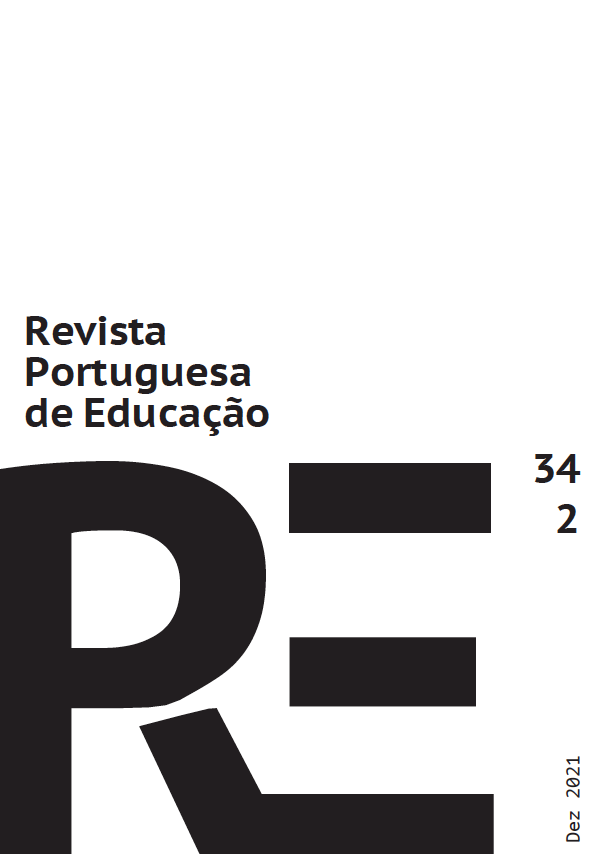Multigrade classes in rural schools: Locus of practices contextualized by difference
DOI:
https://doi.org/10.21814/rpe.20763Keywords:
Teaching in Basic Education, Multigrade classes in the rural area, Research-training, NarrativesAbstract
This study seeks to understand how teaching practices are unveiled and are constituted as ways of narrating, making and forming in the events of the teaching profession, showing how teachers deal with the difference in multigrade classes in rural schools. The research was developed from narratives of the training of five teachers who live in rural communities in the municipality of Várzea do Poço / BA, in the interior of Bahia-Brazil. They are, therefore, teachers who work in Basic Education, developing teaching in multigrade classes in rural schools. As information collection devices, Formative Workshops were developed, inspired by the proposal of the Biographical Workshops of Delory-Momberg (2006). The workshops were constituted as spaces for the production of narratives. This study is based on the (auto) biographical approach based on qualitative research, taking the narratives as a device for research and training of/in teaching in rural schools. It is concluded that the experience is one of the main elements of the production of teaching in multigrade classes of the rural schools, in which ways of narrating, making and forming, are conditions for the production of teaching in these spaces. We conclude, even though the proposals for contextualizing the classes collaborate to give centrality to the differences in the rural schools.
Downloads
References
Amiguinho, A. J. M. (2008). Escola em meio rural: uma escola portadora de futuro? Revista Educação, v. 33(1), 11-32.
Candau, V. M. & Anhorn, C. T. G. (2018). A questão didática e a perspectiva multicultural: uma articulação necessária. 23ª Reunião anual da ANPED. Caxambu, MG, 2000. http://www.anped.org.br/reunioes/ 23/textos/0413t.PDF
Candau, V. M. F. (2011). Diferenças Culturais, cotidiano escolar e práticas pedagógicas. Revista Currículo sem Fronteiras. 11(2), 240-255.
Delory-Momberger, C. (2006). Formação e socialização: os ateliês biográficos de projeto. Educação e Pesquisa, 32(2), 359-371.
Larrosa, J. (2002). Notas sobre experiências e o saber da experiência. Tradução de João Wanderley Geraldi. Revista Brasileira de Educação, (19), 20-28.
Martins, J. S. (2006). Anotações em torno do conceito de educação para a convivência com o Semiárido. In RESAB. Educação para a Convivência com o Semiárido Brasileiro - reflexões teórico-práticas da RESAB. Secretaria Executiva da RESAB.
Morin, E. (2000). Os sete saberes necessários à educação do futuro. Cortez.
Mota, C. M. A. (2019). Docência em classes multisseriadas: conhecimento de si, práticas pedagógicas e diferenças nas escolas da roça. CRV.
Passeggi, M. C. (2011). A experiência em formação. Revista Educação, 34(2), 147-156.
Pineau, G. (2006). As histórias de vida em formação: a gênese de uma corrente de pesquisa-ação-formação existencial. Educação e Pesquisa, 32(2), 329-343.
Pineau, G. (2014). A autoformação no decurso da vida: entre a hetero e a autoformação. In M. N. A. Finger (Org.), O método (auto)biográfico e a formação (2.ª ed) (pp. 91-110). EDUFRN.
Rios, J. A. V. P. (2011). Ser ou não ser da roça, eis a questão! Identidades e discursos na escola. Salvador: EDUFBA.
Silva, F. O. & Rios, J. A. V. P. (2018). Aprendizagem experiencial da iniciação à docência no PIBID. Práxis Educativa, 13, 202-218. https//doi.org/105212/praxeduc.v.13i1.0012.
Silva, F. O. (2020). Tessituras constitutivas da abordagem (auto)biográfica como dispositivo de pesquisa qualitativa. Práxis Educativa, 15, 1-15. http://www.revistas2.uepg.br/index.php/praxiseducativa.
Downloads
Published
How to Cite
Issue
Section
License
Copyright (c) 2021 Portuguese Journal of Education

This work is licensed under a Creative Commons Attribution-ShareAlike 4.0 International License.
1. The authors preserve their authorship and grant the Portuguese Journal of Education the right to the first publication. The work is licensed under Creative Commons Attribution License that allows sharing the work with the acknowledgment of initial authorship and publication in this Journal.
2. The authors have the right to take additional contracts separately, for non-exclusive distribution of the published version of their work (e.g. to deposit in an institutional repository or as a book chapter), acknowledging the initial authorship and publication in this Journal.
3. The authors have the permission and are stimulated to post their work online (e.g. in an institutional repository or on their personal website). They can do this at any phase of the editorial process, as it may generate productive changes, as well as increase impact and article citation (see The Open Citation Project).
The work is licensed under Attribution-ShareAlike 4.0 International (CC BY-SA 4.0)



















